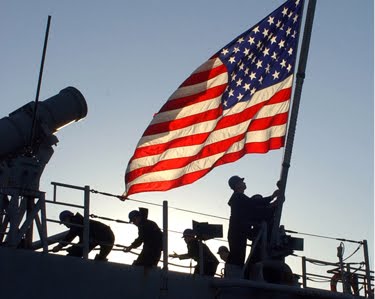Joe Loizzo has been in the army for four years and is currently deployed in Al Anbar, Iraq (http://en.wikipedia.org/wiki/Governorates_of_Iraq). He is my good friend’s cousin and I’ve know him for a few years. He is 22 years-old and from Brooklyn, NY. Thankfully, he will be home in a few months.
I asked Joe about his feelings about the war, military and American government. While he admits he’d rather be in college, he now sees how strong and efficient our military is. “I think it’s great that we the government fix what we break.”
Joe works on a four man special operations team, not because of any special training, but because their rank structure is unique, and different from the usual military unit you would imagine. “Those typical military companies of a few hundred soldiers are here. And if they want something improved in their area of operations, they escort us to the site and we do an assessment. Then we do some paperwork to justify funding a project and once it's all approved we hire a contractor to do the work.”
A typical day for Joe would be spent either doing paperwork in an office for a project they’re funding, visiting a project or just interacting with the locals. They try to improve the standard of living of the locals in an attempt to "win the hearts and minds" of Iraqi civilians. They assess water treatment plants, electric grids, sewage, schools, infrastructure, etc. and hire contractors to work on them. They also support the civil military operations. “If the commander needs to spend money to improve something in his area of operations were his guys.”
It sounds like a normal, day-to-day job that anyone can hold back here at home. But he and his unit’s efforts to rebuild are dangerous. While their everyday life is office work and funding, “combat can happen any day someone shoots at you…the aftermath goes on for years [after the war ends].”
Joe also interacts with locals in an effort to build relationships with them. During a Humanitarian Assistance Project, Joe spent time with underprivileged kids, who live in a combat zone, giving them school supplies and book bags. He describes their reactions as simply amazing. “I realized that children are children no matter where they are in the world. And that feeling of giving back or making a child happy was the proudest moment of my life. I'm proud to be part of the rebuilding and not part of the tearing down. It's definitely different than expected”

Through e-mails, Joe has shown me an aspect of the military, and Iraq, that I was never aware of. Joe is right now in what’s called a Combat Zone. According to him, “it’s not really a war zone. When you think of war you think that you will kill or be killed each day you leave camp. Everyone in the country you’re fighting is your enemy. But that's not the case anymore.”
Joe feels that Iraq’s biggest problem is lack of information. “Most people in Iraq don’t have internet or computer access. Some have never seen a microwave. Pop some corn and they’ll be amazed.”
With little information and hardly any resources, most information is passed through word of mouth. “Picture a world where all information is passed by word of mouth. No international news to gain another perspective… Suppose you have a question and you ask someone older than you for answer…you have no way of checking their answer so you take it as truth. Keep in mind that this person never left your neighborhood may not be able to read and their answer might be wrong… It's a vicious cycle.”




This one soldiers story has a great impact because he isn't the faceless patriotic soldier that we've seen throughout pro army commercials, he has a story and is a real person. The pictures also give more weight to the story. Great posting.
ReplyDeleteThis is valuable insight on military operations. I especially feel his empathy towards Iraqi civilians when he says, "I'm proud to be part of the rebuilding and not part of the tearing down."
ReplyDeleteThis soldier makese proud to be an American!!! And proud to call him family!!!
ReplyDelete